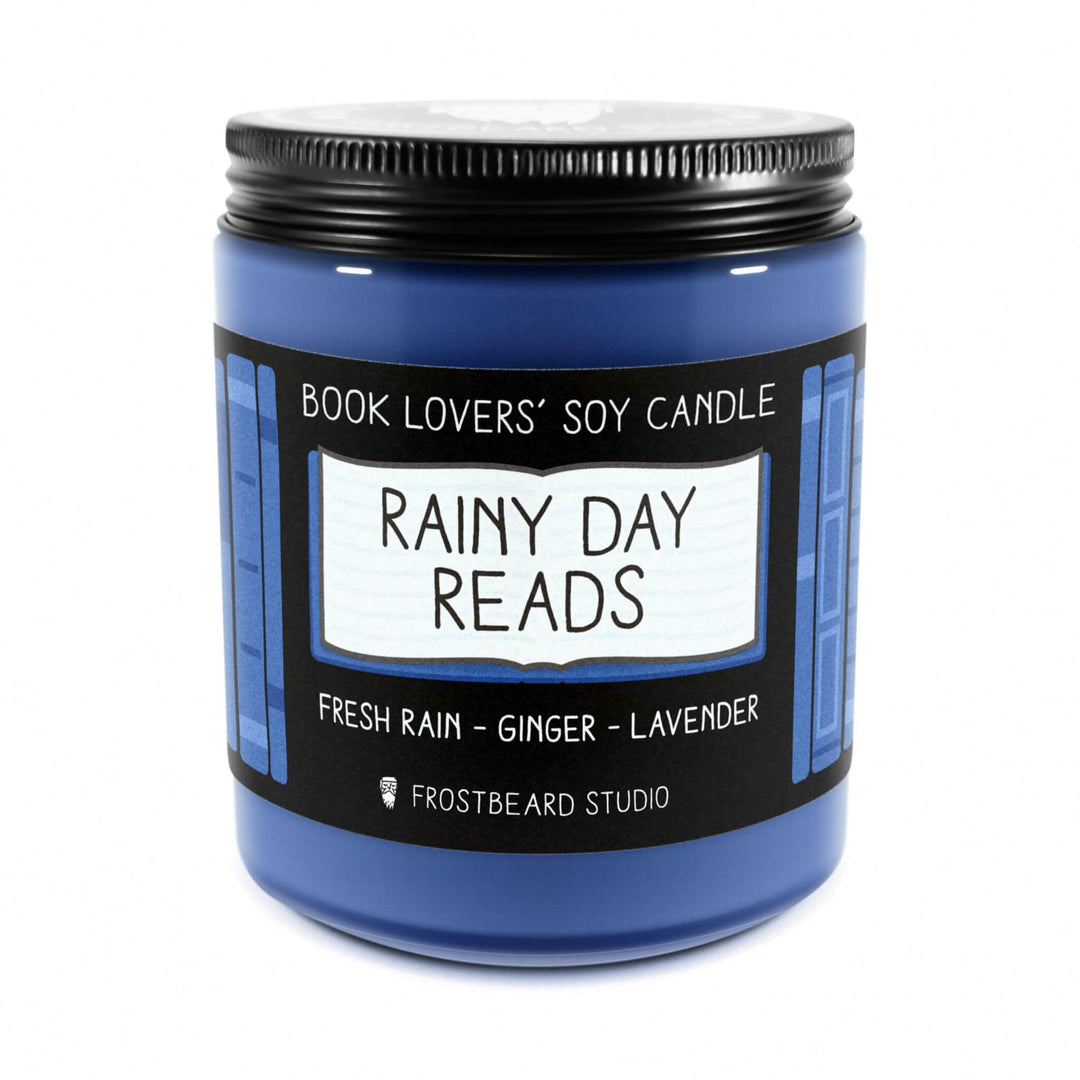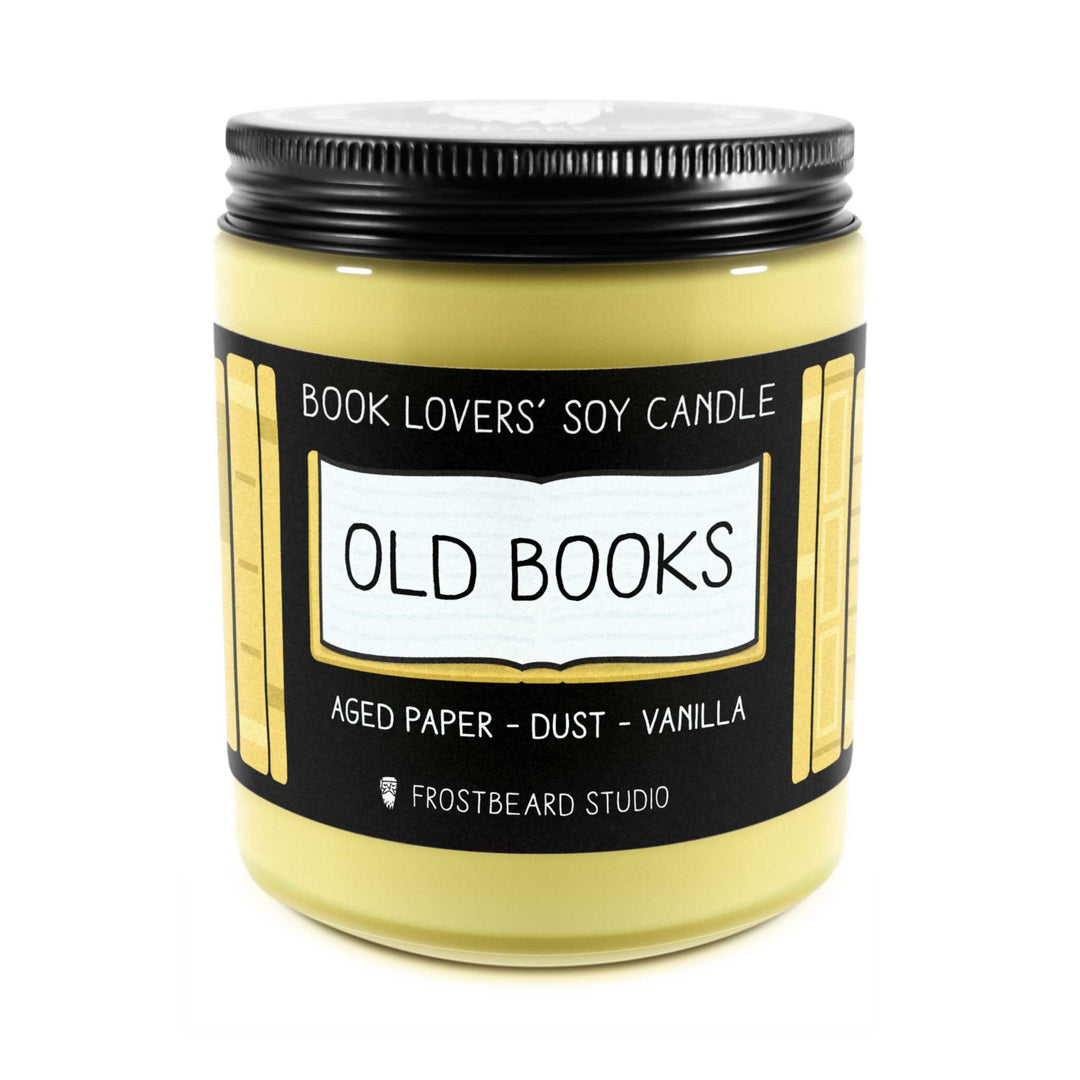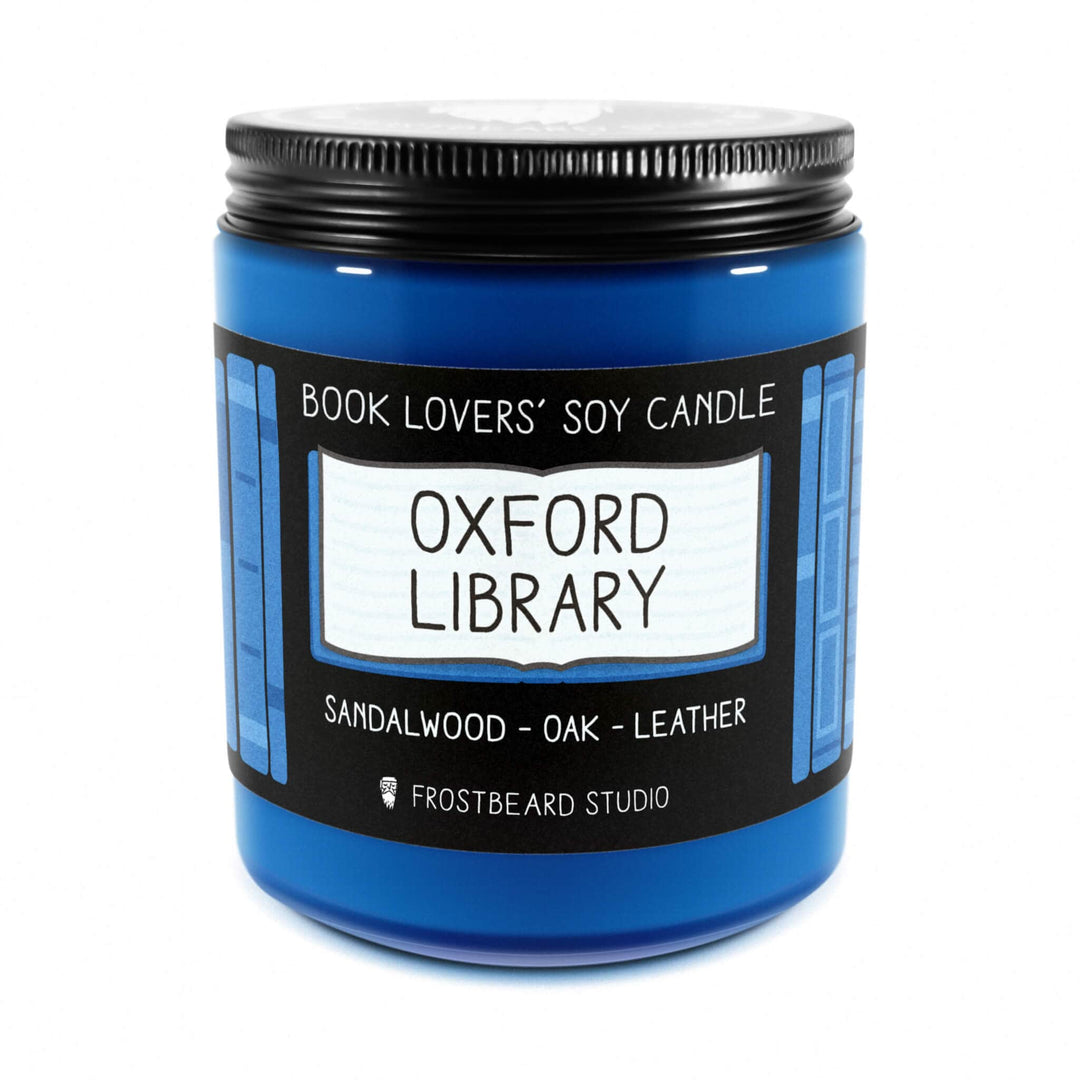Why We Love the Smell of Books: Exploring Bibliosmia
Bibliosmia is the unique, delightful aroma that comes from smelling a book's pages. For book lovers, this scent is more than just a pleasant smell—it's an experience that evokes fond memories and transports them into the stories they love.
Quick Facts About Bibliosmia:
- Bibliosmia is the term for the smell of books.
- It comes from compounds in the paper, ink, and adhesives.
- New and old books have different scents due to varying chemical compounds.
There’s nothing like walking into a second-hand bookstore and being greeted by the familiar scent of old paper. It’s a sensory delight that many bibliophiles cherish.
As an expert in bibliosmia, I've dedicated years to understanding and capturing this essence. My journey began when I founded Frostbeard Studio, where we've created over 100 unique candle fragrances inspired by books.

The Science Behind Bibliosmia
Bibliosmia is more than just a pleasant scent; it's a fascinating blend of chemistry and nostalgia. Let's explore the science behind this beloved aroma.
Chemical Breakdown
Books are primarily made of paper, which comes from plants. Over time, the materials in books break down through a process called chemical decomposition. This breakdown releases various compounds into the air, creating the distinct smell we associate with books.
Paper Compounds
One of the main components responsible for the old book smell is lignin. Lignin is a polymer found in plants that helps bind cellulose fibers together. When paper is made from wood pulp, it contains a lot of lignin. As lignin breaks down, it produces acids that degrade the paper and release a variety of volatile organic compounds (VOCs).
Key Compounds in Book Scent:
- Vanillin: Adds a sweet, slightly woody note, similar to vanilla.
- Toluene: Contributes a chemical, almost gasoline-like aroma.
- Furfural: Smells like almonds and is produced when cellulose degrades.
Old Books vs. New Books
The age of a book significantly affects its scent. Older books, especially those printed before 1845, were made from cotton and linen rags. These materials contain more stable cellulose and less lignin, meaning they degrade more slowly and release different VOCs compared to modern paper made from wood pulp.
Since around 1970, many books have been printed on acid-free paper, which contains less lignin. These books degrade more slowly and don't produce the same intense old book smell as their older counterparts. However, even acid-free paper will eventually break down, releasing its own set of VOCs over time.
Understanding the chemistry behind bibliosmia helps us appreciate why this scent is so evocative. It's a blend of history, science, and a touch of magic that transports us back to different times and places.
The Sensation of Bibliosmia
Bibliosmia isn't just about science; it's about the emotions and memories it evokes. Let's explore why this scent is so special to book lovers.
A Pleasant Smell
The aroma of books is a unique blend of compounds, creating a scent many find irresistible. Whether it's the woody notes of vanillin or the almond-like hints of furfural, each whiff can be a sensory delight. This pleasant smell is a key reason why so many people love spending time in bookstores and libraries.
Memory Association
Smells are powerful memory triggers. The scent of a book can instantly transport you back to a specific moment in time. Maybe it reminds you of reading under a blanket during a rainy day or exploring the aisles of a beloved local bookstore. These memory associations make bibliosmia more than just a smell; it's a doorway to cherished moments.
Nostalgia
For many, the scent of old books brings a sense of nostalgia. It's a comforting reminder of simpler times and cherished memories. This nostalgic feeling is why some people treasure old, worn-out books—they're not just reading material, but keepsakes of the past.
Sensory Delight
The sensory delight of bibliosmia goes beyond just smelling good. It's about the entire experience of holding a book, feeling its weight, and flipping through its pages. This multisensory experience improves the joy of reading, making it a more immersive and enjoyable activity.

Next, we'll dig into why bibliosmia matters so much to book lovers and how it improves their reading experience.
Why Bibliosmia Matters to Book Lovers
Bibliophiles have a special relationship with books. It's not just about reading; it's about the entire experience, and bibliosmia plays a big part in that.
Emotional Connection
For many book lovers, the scent of a book is tied to strong emotions. It's not just a smell; it's a feeling. The aroma can evoke happiness, comfort, and even a sense of trip. This emotional connection makes the reading experience richer and more fulfilling.
Enhancing the Reading Experience
The scent of books can make reading more enjoyable. Imagine curling up with a good book and being surrounded by that familiar, comforting smell. It can make the stories more vivid and the characters more real. This sensory addition turns reading into a full-bodied experience, engaging not just the mind but also the senses.
The Bookish Scent
The bookish scent is unique. It's a mix of chemicals like vanillin and furfural, which give off sweet, woody, and almond-like notes. This scent is not just pleasant; it's a signature of the reading experience. For many, it's as important as the story itself.
A Community of Book Lovers
Bibliosmia also helps create a sense of community among book lovers. Sharing the love for the scent of books can bring people together. Whether it's discussing favorite bookstores or exchanging tips on preserving old books, this shared appreciation strengthens the bond among bibliophiles.
Next, let's explore how you can improve your reading experience with bibliosmia through products like book-scented candles.
How to Improve Your Reading Experience with Bibliosmia
Book-Scented Candles
Imagine enhancing your reading experience with a candle that smells like your favorite book. Book-scented candles are designed to evoke the rich aroma of books, creating a cozy and immersive reading environment. These candles often feature scents like paper, amber, musk, cedar, and vanilla, which mimic the unique smell of old and new books.
Soy Wax: An Eco-Friendly Choice
At Frostbeard Studio, we use soy wax for our candles. Soy wax is eco-friendly, American-grown, and renewable. It's a healthier alternative to paraffin wax, which can release harmful toxins when burned. Soy wax also burns cleaner and longer, providing a consistent fragrance throughout its use.
Handcrafted Quality
Each candle from Frostbeard Studio is hand-poured with care. This ensures a high-quality product that burns evenly and emits a pleasant aroma. Our candles burn for approximately 45-50 hours, allowing you to enjoy the bibliosmia experience for many reading sessions.
Versatile and Reusable
Our candles come in 8 oz amber jars, which can be washed out and reused once the candle is finished. This not only makes them a great addition to your reading nook but also an environmentally conscious choice.
Enhancing Your Reading Nook
Lighting a book-scented candle can transform your reading space into a sanctuary. It sets the mood, making your reading experience more vivid and sensory. Imagine diving into a fantasy novel with the scent of cedar and vanilla filling the air, making every page turn feel magical.
Next, let's address some common questions about bibliosmia and how it improves your reading experience.
Frequently Asked Questions about Bibliosmia
What is the sensation of Bibliosmia?
Bibliosmia is the delightful sensory experience of smelling a book. For many, it brings a rush of nostalgia and comfort. Imagine walking into a cozy bookstore or opening an old favorite novel. The scent that fills your nostrils is a mix of paper, ink, and time itself. It's a smell that can transport you back to cherished memories or make you feel instantly at home.
What is the smell of old books called?
The smell of old books is officially known as bibliosmia. This unique aroma comes from the chemical breakdown of the materials used in book production. Over time, organic compounds in paper, ink, and glue release volatile organic compounds (VOCs), creating that beloved scent. Key contributors include:
- Lignin: Breaks down into vanillin, giving a sweet, vanilla-like scent.
- Vanillin: Adds a vanilla aroma.
- Toluene: Provides sweet, aromatic notes.
- Furfural: Contributes almond and coffee-like overtones.
What is a synonym for Bibliosmia?
A synonym for bibliosmia is vellichor. While both terms describe the smell of old books, they have slightly different connotations. Bibliosmia focuses on the sensory experience, while vellichor evokes the nostalgic and wistful feeling that comes with being in a second-hand bookstore. Both words capture the magic and allure that book lovers cherish.
Next, let's explore why bibliosmia matters so much to book lovers and how it improves their reading experience.
Conclusion
At Frostbeard Studio, we understand the magic of bibliosmia. The scent of a book can transform your reading experience, making every page turn more immersive and memorable. Our book-scented candles are designed to capture this enchanting aroma, bringing the essence of your favorite books to life.
Bibliosmia is more than just a scent—it's an experience. It connects us to cherished memories and emotions, making our reading journeys even more special. Whether you're diving into a classic mystery or exploring a new novel, the right fragrance can improve your connection to the story.
By incorporating bibliosmia into our candles, we aim to create a sensory experience that complements your love for books. Our soy wax candles are eco-friendly and crafted with the finest ingredients to ensure a clean, long-lasting burn. Each candle is thoughtfully designed to evoke the settings and themes of various novels, making your reading moments even more vivid and enjoyable.
So, as you start on your next literary trip, let Frostbeard Studio's bookish fragrances lift your experience. Surround yourself with the comforting scent of books and immerse yourself in bibliosmia.
Happy reading!









